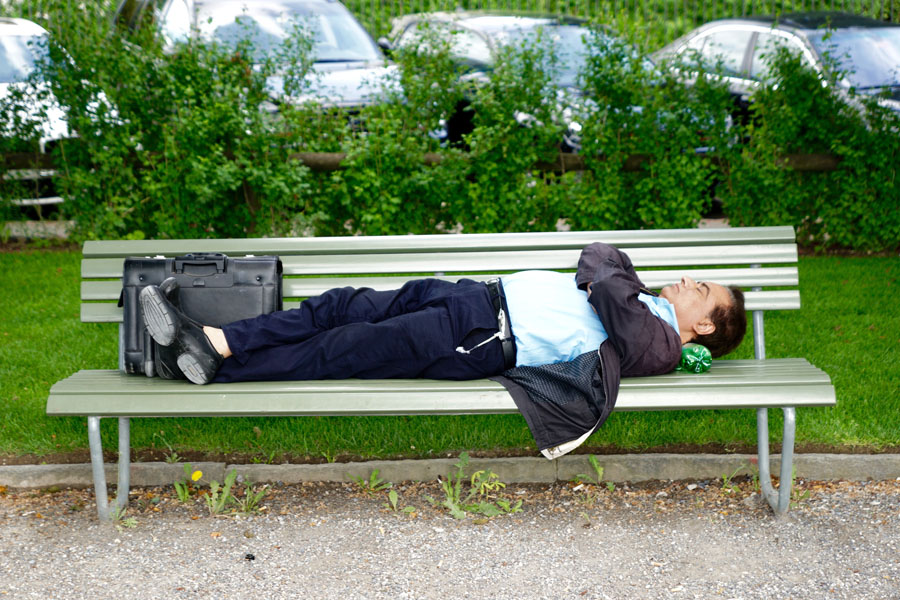We often think of a heart attack occurring like it does in the movies. The victim will suddenly grab his chest, fall to the floor, proclaims “I am having a heart attack,” and passes out cold.
So, when someone has chest pain and does not dramatically drop to the ground, people have a tendency to deny what is happening because they do not want to risk looking foolish by rushing to the hospital. So how will you know if it is happening to you or a loved one?
What is a Heart Attack?
First, it is important to distinguish a “heart attack” from a sudden cardiac arrest. What we commonly refer to as a heart attack is called a myocardial infarction. It is the most common type of cardiac emergency. A myocardial infarction is when at least one of the main arteries to the heart is blocked by cholesterol and/or other built-up materials known as plaque.
A heart attack can lead to a sudden cardiac arrest, but often does not. A person having a heart attack may have noticed chest pain for weeks before the actual attack and the heart attack itself can last an hour or more while the person is still alert.
Conversely, a sudden cardiac arrest, while less common, is more like what we see in the movies. Often, it is the end result of a heart attack – but it can also be caused by something else like a defect in the heart or a chemical imbalance in the body. Therefore, it can have some warning signs like a heart attack or it can come suddenly out of the blue. The main feature is that the heart stops beating or is beating so erratically that it is no longer pumping blood through the body.
Time is Crucial in Both Heart Attacks and Sudden Cardiac Arrests
Both situations are an emergency. If a person is having a heart attack and it goes untreated, it can cause damage to the heart itself and can lead to sudden cardiac arrest. In sudden cardiac arrest, time is even more crucial because if blood stops pumping, the brain cannot live very long and can be damaged within a short amount of time. So, if you think either is happening at all, you should call 9-1-1 immediately and get the person help. Time really makes a difference.
Classic Signs of a Myocardial Infarction or Heart Attack
The signs of myocardial infarction can start mildly for up to weeks before the actual heart attack or come on more suddenly – like chest pain upon exertion and fatigue. If it keeps going on untreated, it will increase in intensity. The symptoms will get worse such as labored breathing, intense chest pain, and panic. A myocardial infarction is an emergency. Dial 9-1-1 immediately to get help if you see these symptoms:
- Recurrent chest pain that typically occurs during exertion and subsides with rest – more common in the morning
- The chest pain is described as a squeezing, pressing, tight, or burning sensation
- Fatigue
- Abnormal Fluid Retention
- Difficulty breathing
- Increased intensity of chest pain that travels down the left arm
- Feelings of doom, anxiety, and panic
- Nausea and light-headedness
Additional Signs of a Heart Attack in Older People
In addition to the signs above, older people can also experience slightly different symptoms. Sometimes, in older people, the symptoms are mild and go unnoticed – leading to a “silent heart attack.” These can be just as deadly and cause significant heart damage. If you or someone you love starts feeling “not right” with vague symptoms that last more than a day or two, you may want to see a doctor to get a check up. It may be more than the flu or “getting old.”
Vague Symptoms of “Silent Heart Attacks” and/or Heart Attack Warning Signs in Older Adults
Prolonged indigestion
Abdominal pain
Feeling more tired than usual over a long period of time
Feeling more winded
Coughing with an unusual cough
Signs of Heart Attacks Seen More in Women
Women tend to have less classic symptoms of heart attacks as well. They often will feel pain in the back of the jaw, neck or back rather in the chest and are more likely to experience any chest pain as more of a squeezing pain. Women may also be more likely to experience extreme fatigue and nausea and feel weakness in the upper shoulder and arm areas.
Signs of a Sudden Cardiac Arrest
Sudden Cardiac Arrest will be potentially more dramatic and is much less common.
- Sudden Chest Pain
- Loss of Conscousness
- No Pulse
- No Breathing
- Passing out
The best help for a person experiencing sudden cardiac arrest is to call for help immediately and administer CPR right away until emergency help can arrive. This will keep oxygenated blood going to the organs and avoid death.
Learning CPR
It may be a great idea to learn CPR if you are caring for someone with the potential for a cardiac emergency. Find a local class near you at the American Heart Association.
As with strokes and other disorders, the sooner someone gets to the hospital and gets medical attention, the better the outcome. So, knowing these signs can save someone’s life.
Source: https://www.sageminder.com/SeniorHealth/Articles/tabid/72/itemid/137/amid/476/signs-of-a-heart-attack-in-older-adults.aspx

